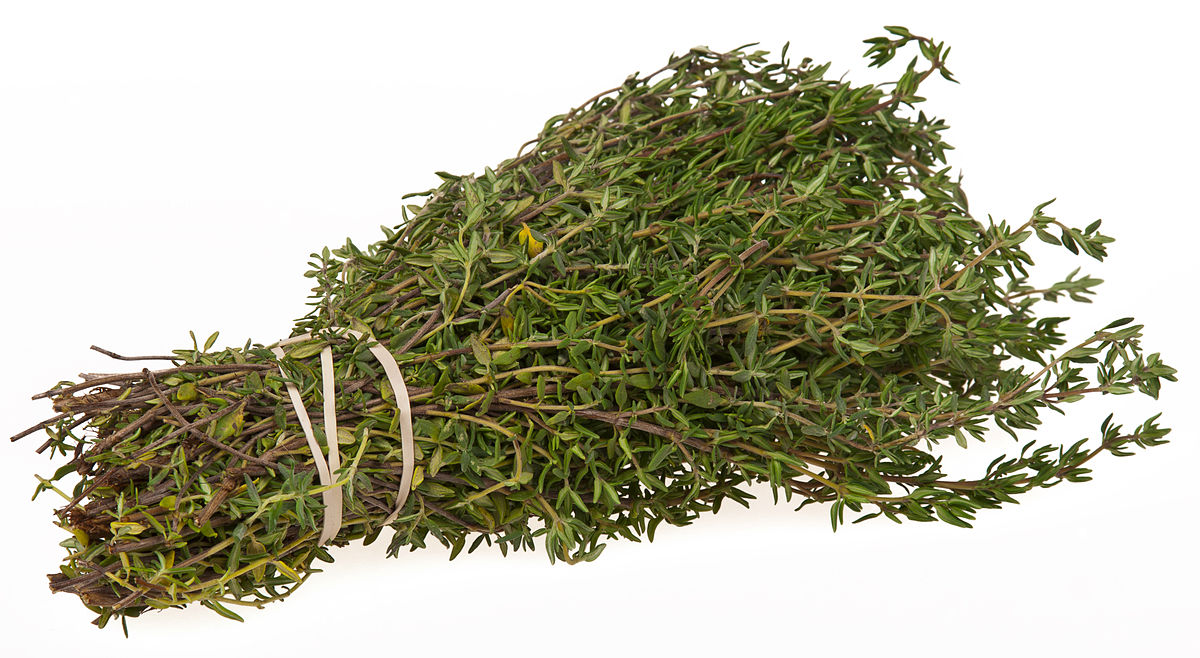Health Benefits Of Thyme
Let’s take a detailed look at some of the health benefits of this shrub.
Anti-fungal Ability
The most active ingredient found in thyme is thymol. This organic compound has a wide range of effects on the body, including its ability to prevent fungal and viral infections, thereby reducing strain on the immune system.
Antioxidant Capacity
With one of the highest antioxidant concentrations in any herb, thyme has been praised for thousands of years as an overall health booster. The phenolic antioxidants found in thyme, including lutein, zeaxanthin, and thymonin contribute to neutralizing and eliminating free radicals throughout the body. Free radicals are the dangerous by-products of cellular metabolism that can do major damage to your healthy cells by causing apoptosis or spontaneous mutation. These antioxidants help prevent oxidative stress present in your organs, as well as your neural pathways, heart, eyes, and skin.thyme
Improves Circulation
The high concentration of iron and other essential minerals in thyme make it ideal for stimulating the production of red blood cells, thereby boosting blood circulation and oxygenation to the essential organ systems of the body.
Protects Heart
The rich blend of antioxidants, minerals, and vitamins in thyme have many small effects on the heart, but potassium and manganese are particularly important. Potassium is a vasodilator, meaning that it can reduce the stress on the cardiovascular system by relaxing blood vessels and lowering blood pressure. This can extend your life by preventing atherosclerosis and avoiding strokes, heart attacks, and coronary heart diseases.
Eye Care
The concentration of carotenoids and vitamin A found in thyme make it an effective antioxidant agent for your vision health. Carotenoids can neutralize the free radicals in your ocular system and slow the onset of macular degeneration and prevent cataracts.
Boosts Immunity
The high levels of vitamin C found in this herb make it a natural immune system booster. Vitamin C stimulates the production of white blood cells, which are the first line of defense in the body’s immune system. Vitamin C also plays a crucial part in the production of collagen, which is essential for the creation and repair of cells, muscles, tissues, and blood vessels.
Reduces Stress
One of the vitamins in thyme (B6) has a powerful effect on certain neurotransmitters in the brain that are directly linked to stress hormones. Regular inclusion of thyme in your diet can help to boost your mood and ease your mind when stressful thoughts come calling.
Treats Respiratory Issues
One of the most well-known and long-standing uses of thyme in traditional medicine is as a respiratory agent. If you are suffering from bronchitis, chronic asthma, congestion, colds, flu, blocked sinuses or seasonal allergies, thyme acts as an expectorant and an anti-inflammatory substance. It eliminates phlegm and mucus from the respiratory tracts, eases inflammation to help breathe, and prevents microbial development that can lead to illness. Brewing thyme leaves into a powerful tea is the best way to achieve relief from respiratory ailments.



 Contact Us
Contact Us






 Hospitals
Hospitals
 Doctors
Doctors
 Diagnostic
Diagnostic
 Pharmacy
Pharmacy
 Health Tips
Health Tips
 Blog
Blog

















Comments